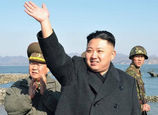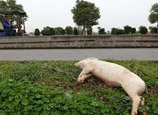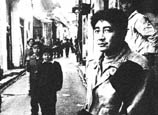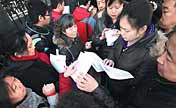
He added that China takes global liquidity levels into full account when making policy decisions, and will hold on to its prudent monetary stance.
The PBOC will maintain its "stable" policies, with tighter control over credit growth and a more open attitude toward financial markets to encourage direct financing, according to Wu.
"As the ratio of money supply against total GDP remains high, it's vital for the authorities to tighten the reins on lending activities, which would amplify the money injections," Wu said.
Liu Mingkang, the former chairman of the China Banking Regulatory Commission, said that this year China will face a "substantial" rise of capital inflows.
China's consumer price index jumped to 3.2 percent in February, a 10-month high and up from January's 2 percent, as capital inflows accelerated.
The country's lending pace slowed in February as new-yuan loans extended by banks fell to 620 billion yuan from 1.07 trillion yuan in January.
The PBOC's recent shift to a policy-tightening bias and growing official concern over inflation pressures mean that a stronger yuan will be part of the policy response, said Irene Cheung, a strategist at the Australia and New Zealand Banking Group Ltd.
However, the depreciation of the yen would have a limited impact on China's economy, especially in terms of trade and capital flows, said Peng Wensheng, chief economist and managing director of China International Capital Corp Ltd.
He said that if the yuan strengthened 20 percent against the yen, the real effective exchange rate of the yuan will go up 1.5 percent, leading to a decline of 2.5 percentage points in China's exports.

















 Spring Style: Temperatures rise in south China cities
Spring Style: Temperatures rise in south China cities


![]()
